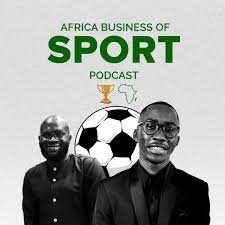Each week, millions of people around the globe consume association football as spectators. They do so ‘in person’ at football grounds, or via broadcast media, meaning that the modern football consumer can enjoy the leagues of their own countries, or globally either as a live event or in pre-recorded or edited highlights format. In recent decades, association football has become a global phenomenon thanks to the appearance of new formats of television and to the liberalization of the transfer market. Football clubs are the basic unit of the chain of institutions – leagues and federations – which form the hierarchy of globalized football, and their management and organization are highly complex.
Indeed, the main beneficiaries of the accelerated globalization of football have been mainly the professional players and, especially, the big stars. This is not the case for the football clubs, which have many problems to convert the great availability to consume football into income and, above all, into profit (Gillett and Tennent, 2017). One of the reasons is the characteristics of a public good which define football, leading to the emergence of the problem of “appropriability” (Buchanan, 1965; Demsetz, 1970; Coase, 1988). Another lies in what has become known as the “economics of superstars” (Rosen, 1981), since extremely talented football players have a disproportionate bargaining power. This happens because owners of professional clubs tend to prioritise sporting success over profit (Sloane, 1971). As football has become liberalized, the capacity to attract the great figures from this sport is what has created the distinction between the clubs that have become global and those which have remained as local, the competitive capacities of which have declined significantly.
We are interested in organizing a session for the European Business History Association 2022 Congress. Our aim is to study the origins and evolution of professional football clubs from a management and organizational history approach. Studying the football industry from a business history perspective is not just relevant and important, but also allows participation in several of the debates open in business and economics fields, including the role played by consumers in the shaping and evolution of an industry; the evolution of an industry toward a structure with an ‘economics of superstars’ character and its consequences; the evolution of the distribution of income among workers (top players and the rest); strategies applied to appropriate the majority of the availability to pay to consume a good with the characteristics of a public good (or of a club); strategies for developing and retaining human capital; and international business and global expansion strategies.
The main objectives of this session are twofold: Firstly, to examine the history of sport (often looked at from a sociological or cultural perspective) through the business history lens, thus contributing to a developing stream of research including Dizin et al (2004), Walters and Hamil (2013), Gillett and Tennent (2017) and Fernández-de-Sevilla (2021). Secondly, following Gillett and Tennent (2020) to broaden the realm of business and management history by providing opportunities to look at themes such as project industries, or the role of not-for-profit organisations in busines.
We are particularly interested in contributions looking at:
- Case studies on individual football clubs,
- Broader approaches addressing one country,
- Comparative approaches across clubs, leagues, countries, federations/associations,
- Studies on football associations (regional, national, or international),
- Analyses focusing on the evolution on specific sub-sectors of the management and organization of professional football clubs (leagues, wages, television rights, advertisement, formative football, and the like),
- The role of entrepreneurship in club’s creation as a non-profit organizations
The EBHA’s congress will take place on 22-24 June 2022 in Madrid, Spain.
Eligibility and how to apply:
Applicants should submit an abstract of no more than 500 words (preferably around 350) outlining their proposal, and a short CV by 31 December 2021 to tomasfernandezdesevilla@ub.edu, mentioning ‘Session of Professional Football’ in the headline. Selected applicants will be informed by early January 2022.
Please note that once arranged, the session will have to be approved by the congress organizers.
Organizers:
Dr. Tomàs Fernández de Sevilla (University of Barcelona)
Dr Alex G. Gillett (University of York)
Dr Kevin D. Tennent (University of York)
References:
- Buchanan, James (1965). “An Economic Theory of Clubs,” Economica 32 (1): 1-14.
- Coase, Ronald (1988). The Firm, the Market, and the Law. University of Chicago Press.
- Demsetz, Harold (1970). “Full Access: The Private Production of Public Goods,” Journal of Law and Economics13 (2): 293-306.
- Dixon, P., Garnham, N. and Jackson, A., 2004. Shareholders and Shareholding: The case of the football company in late Victorian England. Business History, 46(4), pp.503-524.
- Fernández-de-Sevilla, T., 2021. Walking through the Dark: FC Barcelona and the Forced Closure of 1925. The International Journal of the History of Sport, 38 (6): 666-685.
- Gillett, A.G. and Tennent, K.D., 2018. Shadow hybridity and the institutional logic of professional sport: Perpetuating a sporting business in times of rapid social and economic change. Journal of Management History.
- Gillett, A.G. and Tennent, K.D., 2020. Sport and project management: a window into the development of temporary organizations. In Handbook of Research on Management and Organizational History. Edward Elgar Publishing.
- Rosen, Sherwin (1981).“The Economics of Superstars,” American Economic Review 71(5):845-55.
- Sloane, P. J. (1971), ‘The economics of professional football: The football club as utility maximiser’, Scottish Journal of Political Economy, 18 (2), 121-146.
- Walters, G. and Hamil, S. (2013), “The contests for power and influence over the regulatory space within the English professional football industry, 1980-2012”, Business History, Vol. 55 No. 5, pp. 740-767.

















